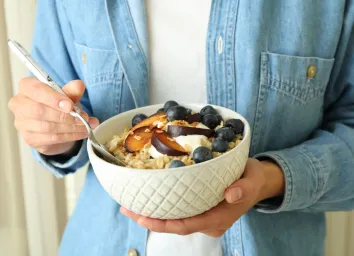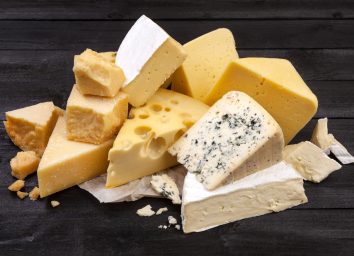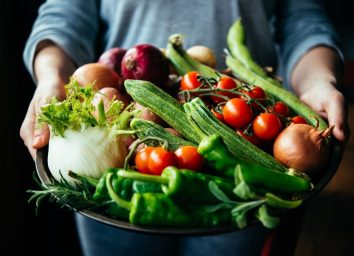5 Snacking Habits to Avoid if You Have High Cholesterol
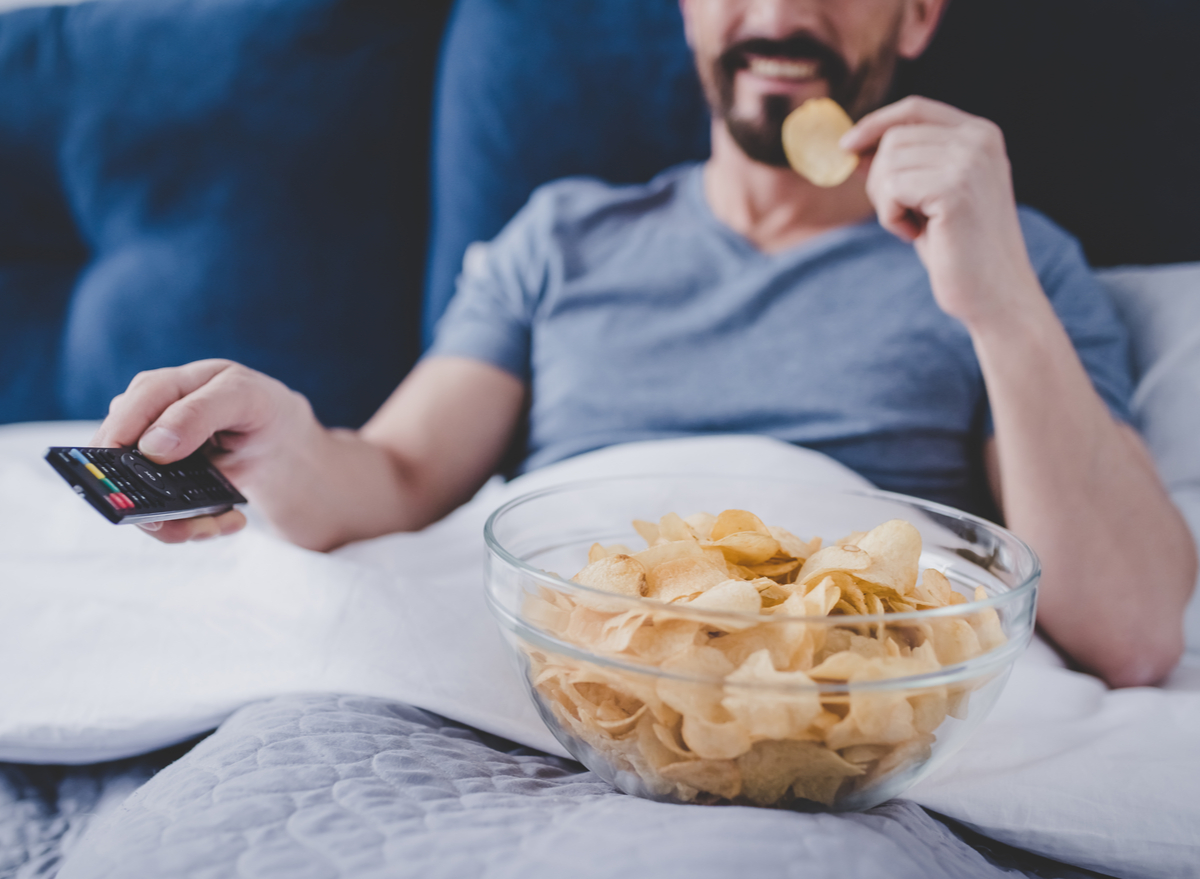
Snacking can certainly impact your health and your waistline—but it doesn't have to!
Focusing on a few key snacktime habits can go a long way when it comes to managing cholesterol and other health concerns.
With attention to balanced choices and a little planning, snacks can be super health-promoting. Keep reading to find out what snack habits you'll want to avoid to prevent high cholesterol, and for more on how to eat healthy, don't miss The #1 Worst Breakfast Habit for High Cholesterol, Says Dietitian.
You're forgetting fiber.
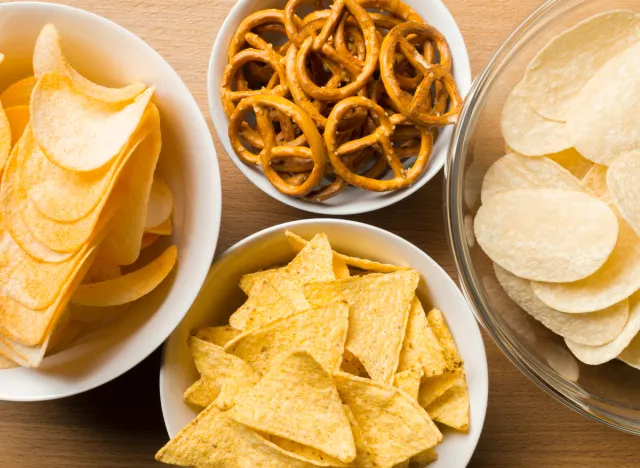
Refined snacks that are low in fiber aren't doing anything to manage your cholesterol levels. Fiber works to bind cholesterol in our digestive tract and effectively reduces cholesterol from our diet by decreasing our blood levels of cholesterol.
Specifically, Mary-Catherine LaBossiere, MPH, RD, LDN, explains that fiber particularly helps with bad cholesterol: "Including fiber in your diet can help lower your LDL also known as the 'bad cholesterol' by decreasing the absorption of cholesterol from food that makes it into your bloodstream."
You don't plan ahead.
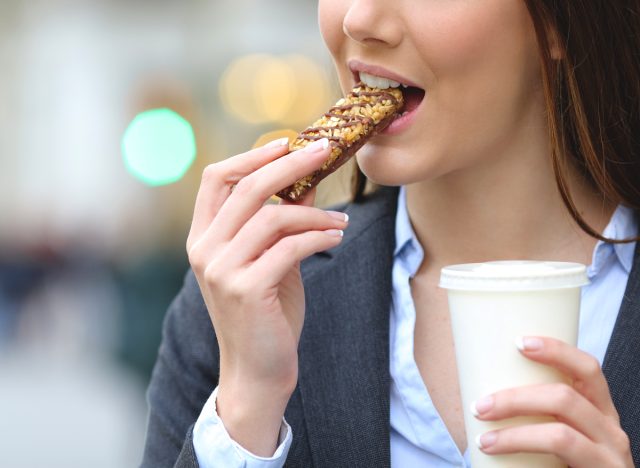
If you tend to reach for a pick-me-up, only to feel like you could have made a better choice, planning out balanced snacks is a healthy habit that might keep you on track.
KeyVion Miller, RDN, LDN, owner of The Miller's Kitchen, recommends planning for snacks in the same way you plan for other times.
She says, "Just like you might plan for meals, plan for good options at home and work that have at least a few grams of fiber. Fiber is a key nutrient to remove cholesterol as waste. Snacking on low-fiber snacks usually happens when we haven't thoughtfully planned ahead to have good snack choices on hand."
Your snacks lack color.
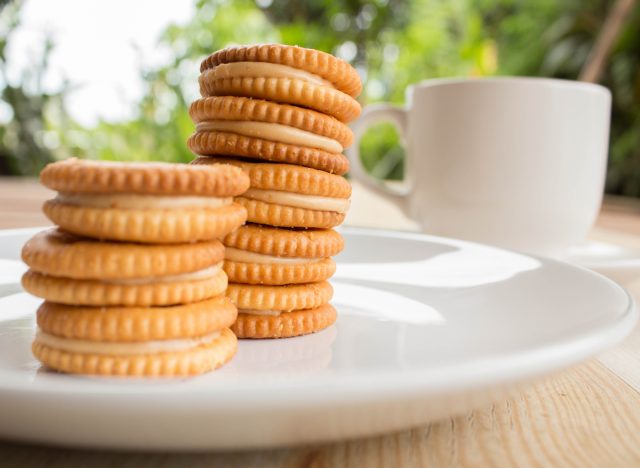
Fruits and vegetables add extra color, fiber, and volume to our snacks for very little calories. We can increase the overall quantity of snacks and feel full longer with the addition of colorful plants!
Amanda Sauceda, MS, RD tells us, "Plants do double duty to help lower cholesterol. They are a source of fiber which has cholesterol-lowering effects. Fruits and vegetables contribute to our gut bacteria and increase gut diversity. Emerging research shows a connection between diverse gut bacteria and healthy cholesterol."
You snack mindlessly.
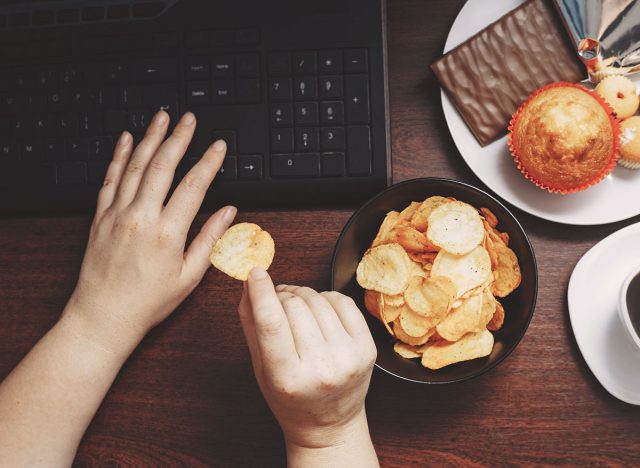
Snack foods already tend to be hard to portion size. Lay's potato chips even includes this sentiment in their motto: "betcha can't just eat one!"
When eating these hard-to-portion foods when we feel distracted, it becomes even more challenging to moderate how much we actually eat. Overfueling can lead to weight gain and is associated with increased risk for high cholesterol over time.
Ashley Petrie, RDN, LDN of Everyday Nutrition and Wellness explains, "Taking the entire package of any product with you to sit in front of the TV or computer can lead to overeating and weight gain. Avoid this by portioning out your snacks and try to be present while eating. Being present while you snack helps you recognize your hunger and fullness cues."
You avoid high-calorie snacks.
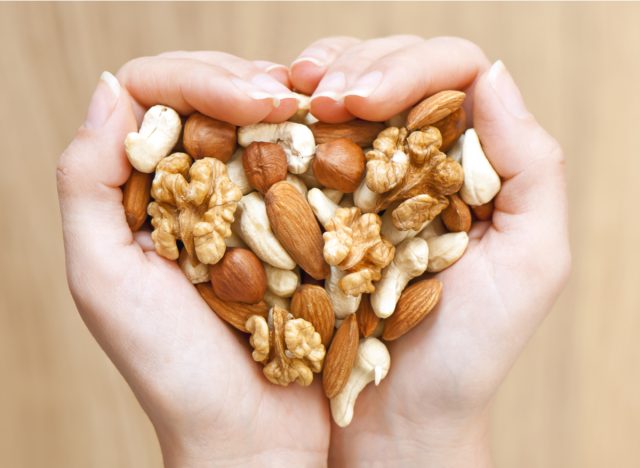
Often, we hear people trying to steer clear of snacks that are too high in calories in order to "save up" for later in the day. However, the research shows that people tend to eat more at night if they have skipped regular meals and snacks earlier in the day.
Nighttime eating is often associated with weight gain and an increased risk of high cholesterol over time. Counterintuitively, eating a balanced snack can stabilize appetite and prevent us from eating more later.
Laura Yautz, LDN, RDN elaborates, "Too much fat can mean too many calories and unintended weight gain, but the right type of fat supports healthy cholesterol levels. Opt for low sodium nuts and seeds, as well as whole grains and avocados, to tap into healthy cholesterol benefits. Portion control is key though since some of these are high calorie."

